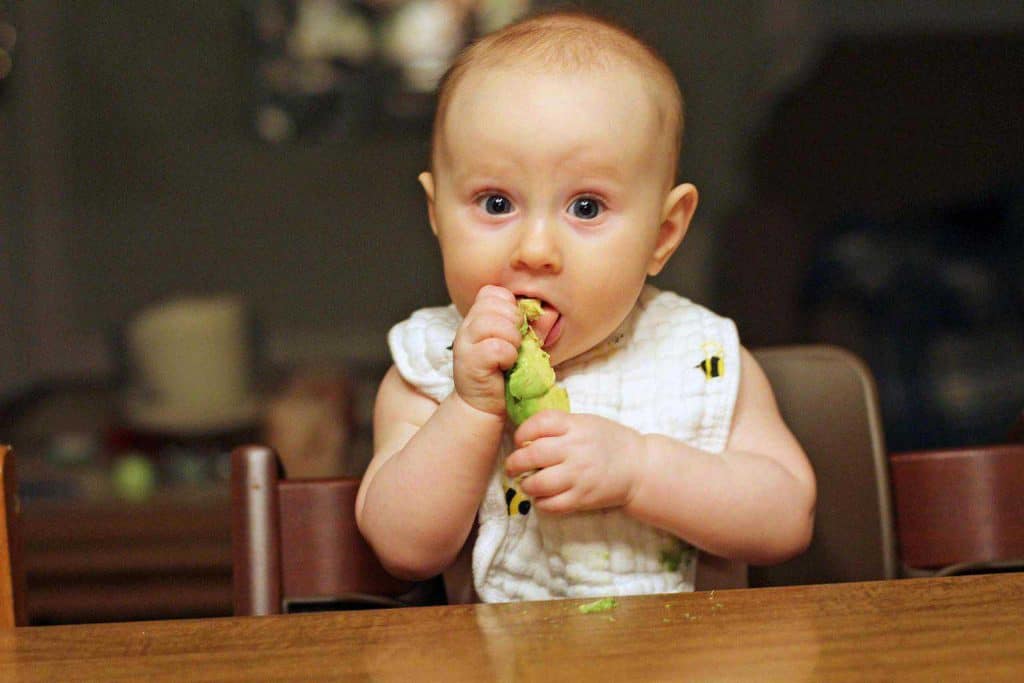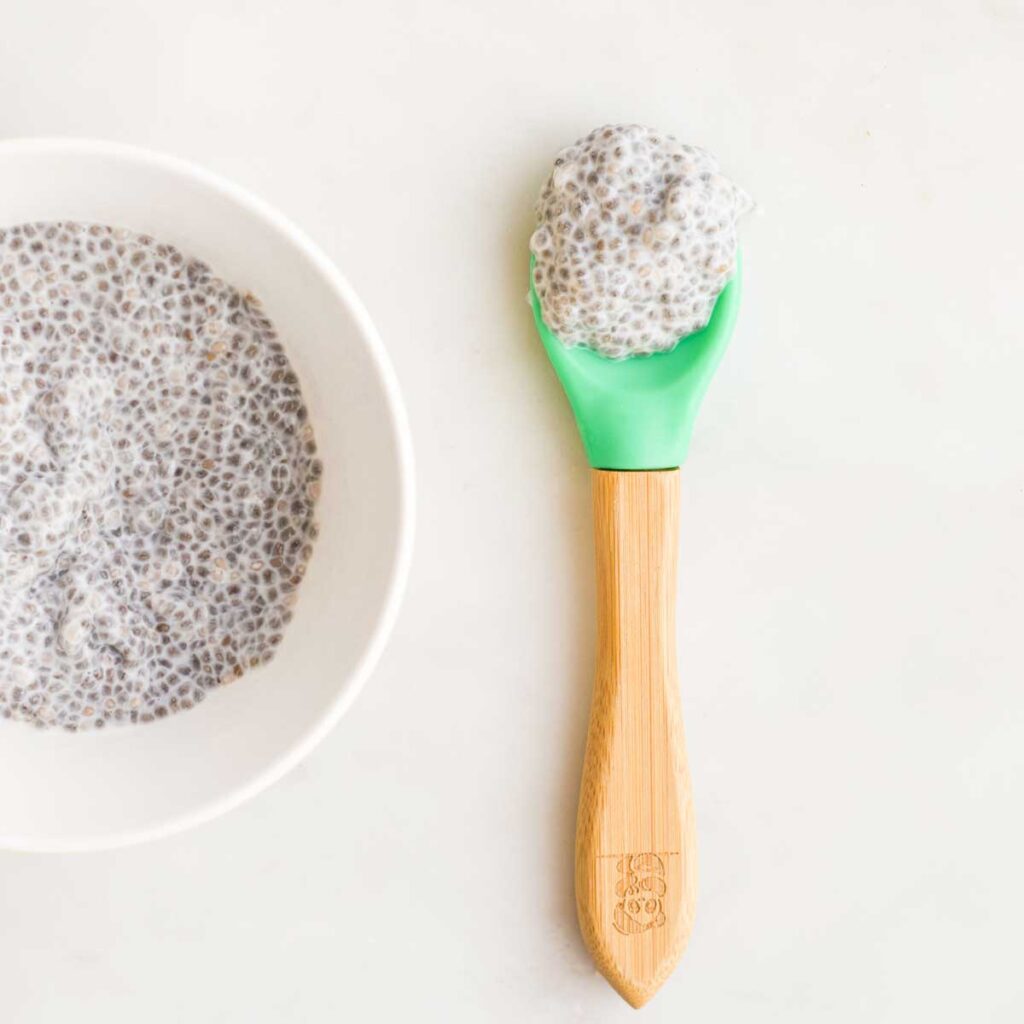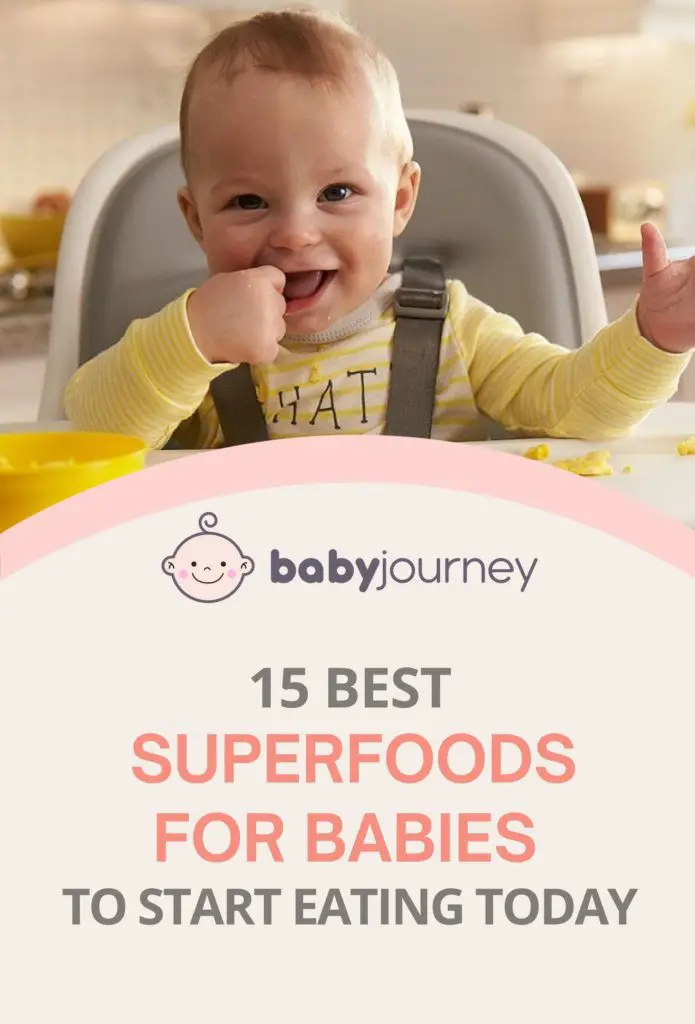Congratulations! Your baby has just started to eat solid food which can only mean one thing – more creativity in choosing the best baby’s diet for your child. Luckily, I am here to help you create balanced and healthy nutrition for your little one, and fill every plate (or bottle) with superfoods for babies!
Still not familiar with the term superfood? Let’s be concise.
Super food for baby (or super foods in general) refer to food rich in vitamins, minerals, and other nutrients that can positively affect organs development, growth, and overall health of your baby.
Keep reading for more super food ideas and start teaching your baby healthy nutrition habits from an early age!
- 15 Best Baby Super Foods To Boost Nutrients in Baby’s Diet
- #1 Sweet Apricots are Baby's Best Friends
- #2 Be Clever with Broccoli
- #3 Yummy Beetroot for Attractive Solid Foods
- #4 Spinach as your Supermum Trick
- #5 Versatile Lentils
- #6 One Egg per Day for Baby's Healthy Growth
- #7 Quinoa for Breakfast
- #8 Full Fat Yogurt as a Delicious Treat
- #9 Butter is Back, and We Love it
- #10 Mango instead of Strawberries
- #11 Salmon and Tuna for Better Grades in Future
- #12 Avocado as Superfood Booster
- #13 Sweet Potatoes for An Organically Sweet Baby Food
- #14 Chia Seeds for Better Immunity
- #15 Butternut Squash in Sticks or Purees
- conclusion
15 Best Baby Super Foods To Boost Nutrients in Baby’s Diet
Take notes or bookmark my list of superfoods for babies to get inspiration whenever you don’t know what healthy food to cook for your baby, for breakfast or lunch!
#1 Sweet Apricots are Baby’s Best Friends

Let’s start with something your baby will probably enjoy as finger food- juicy apricots.
Once your baby turns six months, it is safe to include apricots as solid foods in their meals. Apricots are rich in vitamin A, vitamin C, iron, and zinc [1] and contain a great deal of beta-carotene.
As one of the nutrient-dense foods, it can help babies develop good eyesight, and offers plenty of options for mixing. You can serve them with cinnamon, apples, carrots, and meat as well in your child’s diet.
#2 Be Clever with Broccoli

Once you have introduced apricots to the baby’s meals, you can slowly start with broccoli as the next solid food, approximately once the baby is eight months old.
Babies will hardly eat broccoli voluntarily despite it being one of the best nutrient-rich foods around – at least mine didn’t enjoy it so much. That is why you have to be creative with recipe ideas and try to add sweet potato, fresh herbs, garlic, or cumin.
Even though most people and babies don’t enjoy broccoli, it is one of the most powerful super foods for baby. Broccoli is known for high levels of vitamin A, B, folate, manganese, calcium, iron, potassium, phosphorus. [2] Just name the nutrient – broccoli has it!
#3 Yummy Beetroot for Attractive Solid Foods

With high levels of Betalain, antioxidants, vitamin C, and potassium, [3] manganese, and magnesium, beetroots are toddler superfood for a strong reason. Betalain positively affects blood vessels and strengthens the bone structure.
You can introduce beetroot to your baby at the same time as broccoli. Another way to give younger babies beetroot is to puree both beetroot and sweet potatoes for an ultimate nutrient rich food!
#4 Spinach as your Supermum Trick

At about the same time when you introduce broccoli and beetroot – eight months of age, you can start with spinach, too. First of all, spinach is in charge of ensuring good vision and has numerous nutrients such as vitamins (K, A, C, E), minerals (folate, riboflavin, manganese, potassium, magnesium). Yummy, right?
No. Even if you try to convince your child about spinach benefits (assuming that your baby is genius and he/she understands the benefits), the baby will still spit it out and leave ugly green stains. That is why you can serve spinach with fruit puree and hope that the junior won’t notice the difference.
If you want, you can steam spinach and add thyme or garlic to improve the taste. Still, it doesn’t guarantee that the baby will love it.
#5 Versatile Lentils

Lentils are commonly used for soups and in combination with vegetables. People don’t often use lentils in daily nutrition, but you should start as soon as your baby turns eight months. It is because lentils have a wide range of helpful nutrients, [4] including B vitamins, magnesium, potassium, and high levels of iron.
Molybdenum and folate can also be found in lentils, and they help numerous enzymes in your baby’s body to function properly. Moreover, lentils are a great source of natural protein and dietary fiber, and a great example of the most nutritious food for baby and even for older kids.
#6 One Egg per Day for Baby’s Healthy Growth

As we all know, the egg is probably one of the most well-known protein sources. The eggs contain Omega-3 and Vitamin B for the healthy muscle and brain development of your toddler and are in charge of proper baby growth. [5]
Most importantly, it can be served in various tasty ways and your kid will definitely love it. The eggs are safe solid food for baby-led weaning too once baby turns six months.
#7 Quinoa for Breakfast

Another excellent source of protein food for babies is Quinoa. It has also a great balance of essential amino acids and is rich with manganese, [6] phosphorus, magnesium, folate, and vitamin B1.
Quinoa goes well with everything, but babies are most likely to start loving quinoa if you prepare it with apples or as a breakfast porridge. You can mix some healthy dose of spinach with it as well for a more balanced diet, but don’t start before your baby reaches 8 months.
#8 Full Fat Yogurt as a Delicious Treat

According to a study published by Oxford University, yogurt can help your baby maintain a healthy digestive system. It is excellent for babies to build healthy bones as baby yogurt is made with whole milk and contains high levels of calcium. Six months is a good age to start with whole milk yogurt, and this is also perfect for teething babies!
There are numerous ways you can use plain yogurt or Greek yogurt in your baby’s nutrition since it pairs quite well with all the fruits and even vegetables. You can add yogurt to fruit purees or have your baby scoop it up to eat. You might want to check if there is any allergic reaction from taking yogurt though, since babies with milk allergies will be greatly affected by this consumption.
#9 Butter is Back, and We Love it

Although butter is known for its high level of fat, it is a great source of fat-soluble vitamin like Vitamin A, D, E, and K. Moreover, butter is rich with DHA and EPA fats, which are responsible for baby’s cognitive development. You can start to add a small amount of butter to the food purees recipes for your baby after six or seven months.
#10 Mango instead of Strawberries

BBC states that mango is rich in fiber, essential vitamins like A, C, B6 and E, iron, calcium, and zinc. Mango is great for your baby’s immune system, heart, digestive, and eye health.
It tastes good and is an excellent example of naturally sweet nutritious foods for baby that you can slowly introduce to your baby once they reach the milestone of six months!
Also, if you are avoiding strawberries and other red fruits until your baby turns one year, you can serve mango as an excellent source of gallotannins, known for its vascular health benefits.
#11 Salmon and Tuna for Better Grades in Future

Fatty fish like tuna and salmon positively affect the nervous system, brain function and eyesight, and are safe healthy foods to introduce to a baby’s diet once your child turns six months. NY Daily News published the results of the study, which showed that children who ate tuna or salmon regularly achieve better results in school.
This isn’t surprising, since both tuna and salmon contain a high amount of Omega-3 fatty acids, known to help increase good cholesterol or healthy fats in the body and are important for brain development in young babies.
Therefore, to help your child score better on tests, you can start by mixing tuna and salmon on its plate! If you are running out of ideas on how to prepare fish dishes, check out our easy fish baby recipes to have more baby food inspiration!
#12 Avocado as Superfood Booster

Avocado is one of the best superfoods for babies due to its excellent properties, such as high levels of folic acid, potassium, and B-vitamins. Besides, avocado helps your baby to absorb helpful nutrients from other food and therefore it is best to serve it with other toddler superfoods.
It is, if you want, a superfood and a superfood booster. You can make a puree from one avocado or mix it with whole milk yogurt when you start introducing it to your baby’s nutrition when your baby turns 4 months old.
#13 Sweet Potatoes for An Organically Sweet Baby Food

Sweet potatoes are full of essential vitamins and minerals like beta carotene, potassium, vitamin C, and fiber. They also provide antioxidant protection to your cells by neutralizing free radicals in the body.
Sweet potatoes are among the most popular foods for infants, because these complex carbohydrates have a naturally sweet taste. You can easily incorporate sweet potatoes into your baby’s diet either by offering them in soft small pieces or turn them into sweet potato puree. You may even add cinnamon or coconut oil for a dash of flavor!
#14 Chia Seeds for Better Immunity

Chia seed may seem like adult food more than baby food with all the talks of chia seed benefits in slimming, but these seeds are actually perfect for a growing baby’s meals. It has high amounts of protein, healthy fats like omega-3, magnesium, fiber and iron, and it is a wonderful source of antioxidants more than what blueberries can offer! This superfood helps to boost your child’s immune function thanks to zinc as well as having healthy blood with vitamin K’s presence.
You can use either black or white chia seed to feed your baby as there isn’t a difference in terms of nutrition. [7] Most of the time, parents serve chia seed by mixing it with other foods like breast milk, baby formula or unsweetened milk, yogurt, cereal, or mashed veggies work too. You could also make chia seed pudding!
#15 Butternut Squash in Sticks or Purees

Butternut squash is most babies’ favorite healthy snack. Kids love this due to its sweet taste but moms love it because butternut squash provides plenty of nutrients to their children!
It contains a lot of compounds that can improve your child’s health, including beta-carotene antioxidants, folate, vitamin C, potassium, B-vitamins and fiber, plus some tiny amount of Omega-3 fatty acids. You can easily offer it to young infants in the form of puree (just steam it to preserve the nutrients before you puree), or cut into small soft sticks as finger food for older babies.
conclusion
A baby’s nutrition needs to be diverse and by making use of superfoods, your little one is well on his or her way to having a healthy immune system, rapid growth with healthy bones, and better brain development. Superfood is usually easy to cook and combine with other ingredients, so it also leaves you a great deal of creativity.
Have you already tried to give your baby some of the foods from my list? If so, how did your baby react? Did he or she love it, or you had to wipe the gooey chia leftovers and pray that the beetroot won’t leave stains?
Share my list with other moms, and good luck with making the baby eat these superfoods!
—




